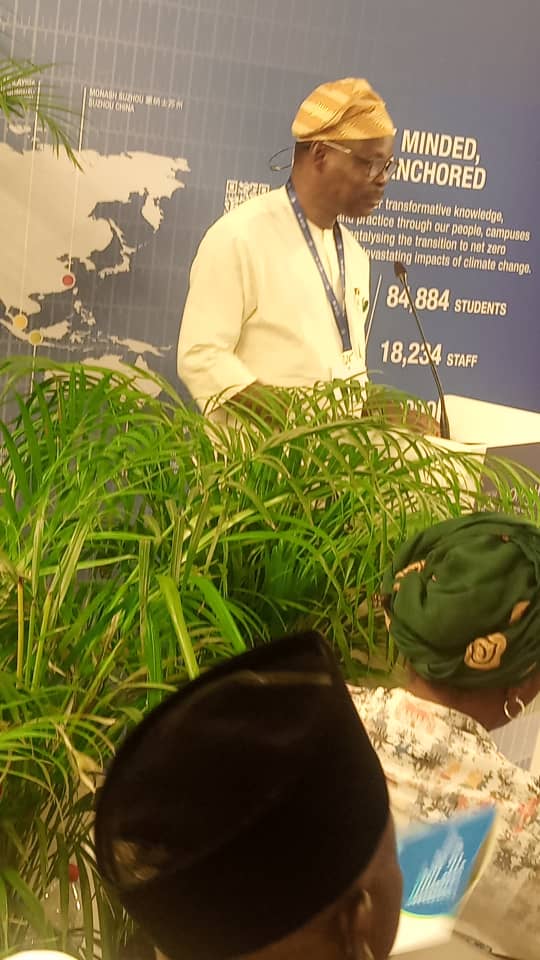By Chuks Oyema-Aziken reporting from Dubai
Minister of State for Environment, Dr. Iziaq Salako has restated support of African countries for the ratification of the new international ocean treaty for the high seas.
He said this at the High Ambition for the High Seas at the Monash University stand at the IUCN in the margin of of COP28 in Dubai.
He said Nigeria is also using the instrumentality of ECOWAS Chairmanship under President Bola Ahmed Tinubu to mobilise the ECOWAS sub-region.
According to him “Just last week, with the support of Bloomberg Ocean Initiative, ECOWAS countries met in Abuja, Nigeria and decided on a path to promptly ratify the newly adopted high-seas treaty to facilitate the designation of highly and fully protected areas in the global ocean beyond national jurisdiction.
“For Nigeria and indeed for ECOWAS, this is an essential and urgent step, and we call on all other regions and countries to join us and promptly ratify the treaty so that we can achieve 60 ratifications by June 2025.
“There is no greater challenge confronting the global community today than that of climate change. And, perhaps, nowhere will the effects of climate change be felt so profoundly as in our oceans.
“Oceans provide livelihoods for millions of people, yet the livelihoods, human habitats, and diets that are only supported by healthy oceans are increasingly jeopardized as our climate changes. Today, we are facing a planetary emergency and our response needs to be commensurate with the scale and urgency of this emergency.
“Nigeria is a maritime state with an over 850km shoreline boarding the Atlantic Ocean and an estimated 20 million people living along the coastal zone. The lives, livelihoods and health of these 20 million Nigerians is potentially directly impactable by the health of the Atlantic ocean and we are now seeing riverine communities being washed away and becoming extinct.
He said that establishing fully and highly protected marine areas must be a shared responsibility.
“We all share in the benefits provided by our oceans. We will also share in the harm when degraded coastal and marine ecosystems threaten the physical, economic, and food security of local communities, and when it threatens the global economy. If we fail to protect our oceans, our oceans will be unable to protect us.”



